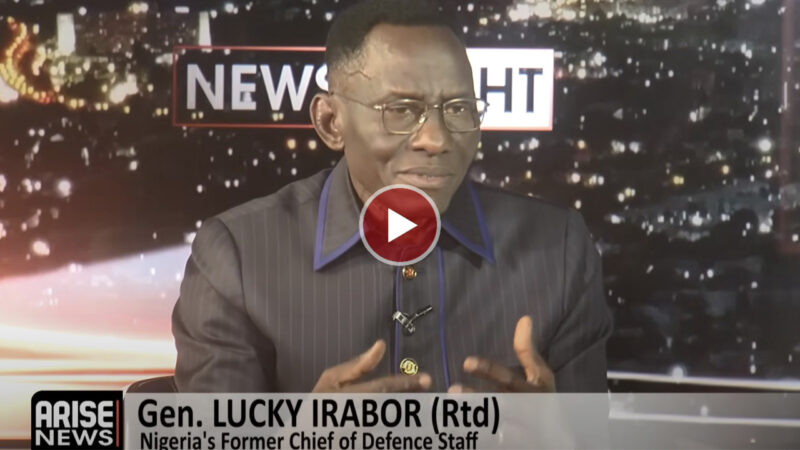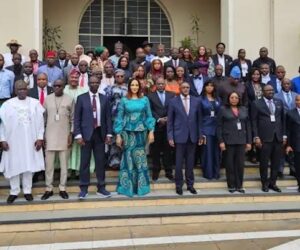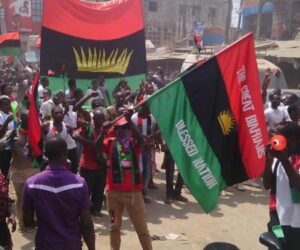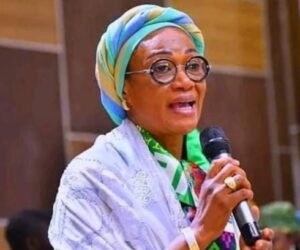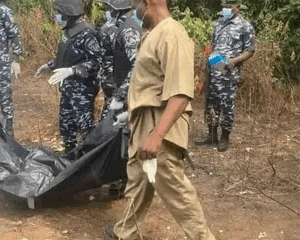
Nigeria’s former Chief of Defence Staff, General Lucky Irabor (rtd), has warned that the Boko Haram insurgency and wider insecurity in the country cannot be defeated through military force alone, insisting that political leadership must take full ownership of the war.
Speaking in an interview with ARISE NEWSon Friday about his new book ‘Scars: Nigeria’s Journey and the Boko Haram Conundrum’ , the former defence chief said successive governments had failed to provide the legal and political framework necessary to end the conflict.
“What I see, and I was very clear in the book, is that the government, past and present, has not seen the need to declare war with the necessary legal instruments against Boko Haram and all forms of insecurity across the country. There is no declaration from the National Assembly saying we are in a state of war. Without that, parts of the constitution that ought to be suspended for a proper war effort are not activated, and all elements of state power are not deployed.”
Irabor, who led ‘Operation Lafiya Dole’, recalled key battlefield successes during his tenure, including the capture of Alagano, clearance of the Sambisa Forest and the elimination of senior Boko Haram commanders. Yet he stressed that insurgency has persisted because it goes beyond military confrontation.
“It would have been a good thing to see Boko Haram extinguished during the presidency of the late President Muhammadu Buhari. But conflicts of this nature are not chessboard games. Being a military strategist does not mean you can solve every violent problem with military precision. That is why the book calls for a paradigm shift – using other elements of state power, not just the hard power of the military.”
The retired general explained that poor governance, divisive politics, and weak institutions have fuelled extremism.
“Some politicians don’t realise that the kind of comments they make end up motivating extremist groups. Poor governance has also been at the root of many problems. In communities without government presence, criminals become the alternative, providing protection and even winning local support. There are also affluent individuals and external actors who give support to criminals. These are the nuanced factors we must address.”
Irabor insisted that the state, not the military, must lead the campaign plan.
“It is the state that is at war, not the military. The military is only an element of state power, a policy implementation tool. It is not the military that should explain why it is deployed or what the campaign strategy is. That knowledge has been missing, and that is why Boko Haram still lingers.”
On the controversial ‘Operation Safe Corridor’, the programme designed to de-radicalise and reintegrate repentant fighters, he maintained support but noted it was insufficient on its own.
“Operation Safe Corridor is a strategy I will support today and even tomorrow. But it must not be seen as sufficient in itself. It was crafted by the military, not the political class. The key question is not whether it exists, but how well it has been activated and resourced.”
Irabor also highlighted the absence of a “war room” where political and military leaders should jointly deliberate on strategy.
“It is not necessarily about having a war room in the villa, but is there a place where military and political leadership meet to interrogate strategy, tactics and operations? That knowledge has seemed missing, and that is why the military was left at the centre of a war that should be state-owned.”
Looking beyond Boko Haram, the former defence chief said insecurity in Nigeria must be seen in totality, with governance and inclusiveness forming the foundation of peace.
“Peace and security are the end goals, but the means must include governance, inclusiveness, economic opportunity, and trust. Road construction, job creation, communication infrastructure – many don’t see these as contributors to national security, but they are. Unfortunately, over the years, trust between citizens and government has eroded, and that weakens security.”
He said his 330-page, 14-chapter book was intended to spark a national conversation on insecurity.
“Boko Haram is only a connecting point. Its dastardly manifestations show that we must urgently address underlying insecurity in Nigeria. My intent in putting this book together is to have a national conversation on how to use all elements of state power to secure the nation. The military line should not dominate.”
Boluwatife Enome
Follow us on:

